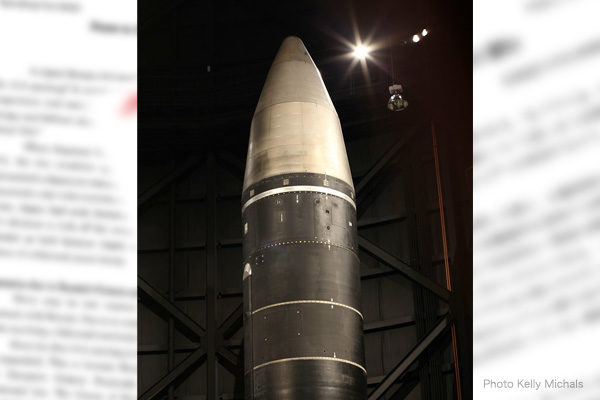When the United States intercepted top secret Russian communications around October 2022, there were frequent discussions about the use of nuclear weapons within Russian military, The New York Times reported on March 9. CNN television on the same day quoted the administration officials as saying that the Biden administration was concerned around that time about the possibility of Russia attacking Ukraine with tactical nuclear weapons. In fact, Russian President Vladimir Putin warned in a televised address to the nation on September 21, 2022, that he was prepared to use nuclear weapons.
The scenario where tactical nuclear weapons could be used is becoming a reality even in the vicinity of Japan. China already has more than 500 nuclear warheads and is increasing the production faster than expected. When the strategic nuclear balance between the U.S. and China reaches equilibrium in the near future, it may be difficult for the U.S. to deter China from using tactical nuclear weapons against Taiwan or Japan.
Lacking sense of crisis among politicians and the public
In an ordinary country, there would be a national debate on how to respond to a looming nuclear threat. In Japan, however, the idealism of nuclear abolition takes precedence due to its intense experiences as the world’s only atomic-bombed country, and the reluctance to discuss about nuclear weapons persists. Given that talks on nuclear sharing advocated by former Prime Minister Shinzo Abe had been silenced even within the ruling Liberal Democratic Party, I have to question a sense of crisis among politicians.
The crucial question is how Japan can ensure that the country will never be subjected to nuclear attacks again based on the reality that abundant nuclear weapons exist and their elimination from the earth is difficult.
I do not deny the abolition of nuclear weapons is the ultimate goal, regardless of whether the abolition is possible or not. It is also essential to redouble efforts to reduce nuclear weapons on the entire planet as a way to achieve the abolition. However, what is important now is for the Japanese public to share a sense of crisis that the use of nuclear weapons against Japan is growing realistic.
Discussions on nuclear deterrence are required now
It has been pointed out frequently in the U.S. that the day when the U.S. alone can no longer deter China is approaching and that it is difficult to simultaneously deter the three nuclear powers of China, Russia, and North Korea. In this sense, it is time for Japan to discuss how to ensure nuclear deterrence in its relationship with the U.S.
Prime Minister Fumio Kishida will hold a summit with U.S. President Joe Biden on April 10 and address a joint session of the House and Senate on April 11 during his U.S. visit. I hope that Kishida himself will not turn a blind eye to nuclear threats but clearly demonstrate Japan’s will to deter nuclear attacks and its views on closer cooperation under the Japan-U.S. alliance.
Kiyofumi Iwata is a member of the Planning Committee at the Japan Institute for National Fundamentals. Formerly, he served as Chief of Staff of the Japan Ground Self-Defense Force.


